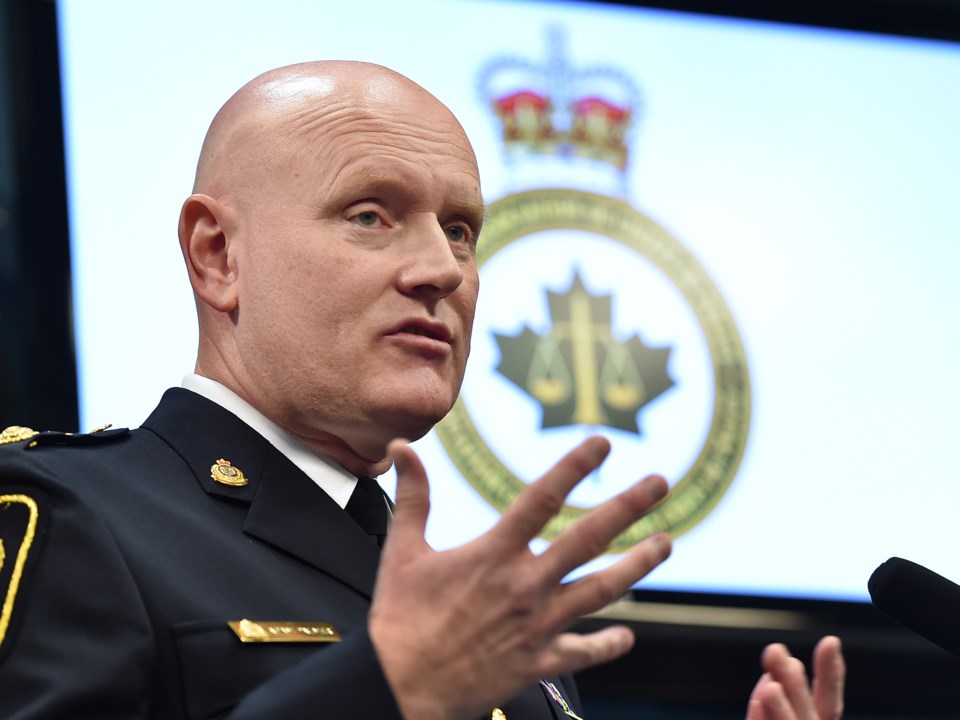Canada’s new legislation making the recreational use of marijuana legal goes into effect Wednesday and Vancouver’s top cop says police are ready for the change.
“Two days from now on Oct. 17 the use of recreational cannabis will be legal in Canada… One question that has been asked consistently since the legislation was first introduced is ‘Will the police be ready?’ As president of the Canadian Association of Chiefs of Police, I’m here to tell Canadians that the police are ready,” VPD Chief Adam Palmer told reporters Monday.
He added that while the legalization of marijuana is new for Canadians, enforcing laws around impaired driving and the illegal production and distribution of cannabis are not new to police.
“We’ve been dealing with impaired driving for many, many decades in Canada.”
Palmer said that applying the new laws will be a concerted effort between various agencies and there will be some variations in the rules in different municipalities. For example, in Vancouver the regulation of cannabis will be more similar to tobacco than alcohol. You can’t walk down the street with a beer in your hand but you can walk down the street smoking a cigarette and on Wednesday you’ll be able to walk around smoking a joint. However, much like smoking tobacco, Vancouver bylaws prohibit the consumption of marijuana in parks and on beaches. And the provincial regulations maintaining a six-metre smoke-free buffer near doorways and air intakes apply to pot as well.
Palmer said that after Oct. 17, complaints about the public consumption of marijuana will likely be dealt with by by-law officers while police will focus on things such as impaired driving and illegal grow ops. As for unlicensed dispensaries, Palmer said the response will vary across the country but for cities like Vancouver that have a higher number of dispensaries operating without a licence, the new regulations provide some clarity.
“That’s going to be an interesting one… Now the law will actually become clear and will be able to assist us on that regard, working with the city, working with the province,” he said. “The province is going to take the lead on it, because they have… community safety units that will be tasked with that responsibility but we will be working with them and assisting them as necessary.”
However, the chief added that police are not planning any large-scale crackdowns right off the bat.
“You’re probably not going to see a whole big change with regard to what police are doing, or what anybody else is doing,” Palmer said. “This is going to be an approach that’s going to be measured, take time for the new laws to come into effect until everybody gets used to it and new stores get their licences… I think we’re taking a pretty common sense, pragmatic, measured approach to get the stores online.”
Palmer also cautioned that all issues around cannabis will not be address or resolved right away, it will be an ongoing process.
“Please keep in mind that the enforcement of the new cannabis laws is not the only public safety issue for police agencies in Canada,” he added. “Different areas in the country will have different priorities and as police leaders we continuously set priorities with public safety in mind. This will not change with the legalization of cannabis and there are other pressing public safety issues in our country that we are facing.”
@JessicaEKerr
jkerr@vancourier.com



